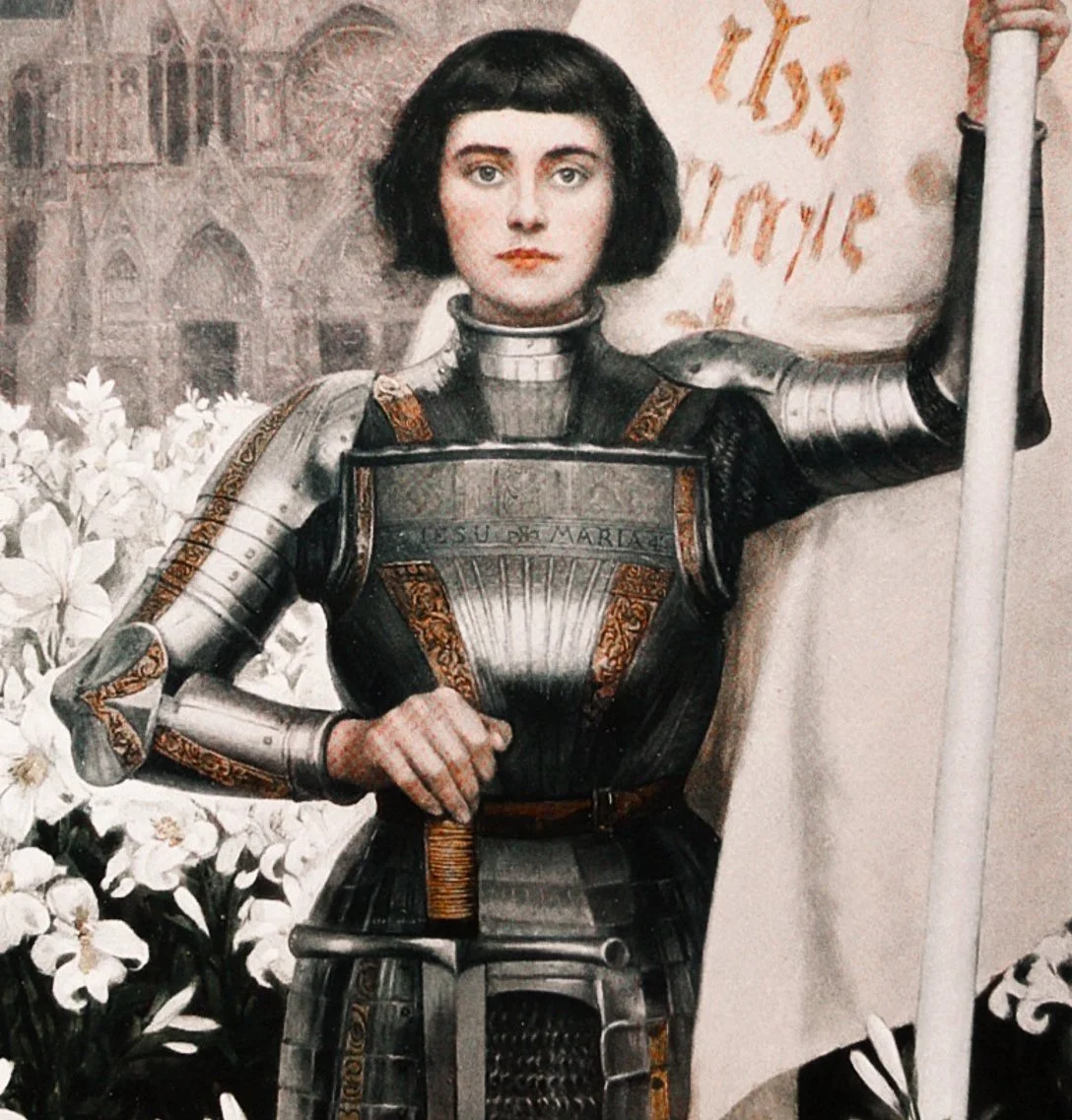Joan of Arc: A Lesson in Courage
“One life is all we have and we live it as we believe in living it. But to sacrifice what you are and to live without belief, that is a fate more terrible than dying” (St. Joan of Arc).
I would not be the person I am today if it were not for the women who’ve supported, encouraged, loved, and prayed for me. Relatives, friends, co-workers, bosses … there have been so many, and I am so very grateful for them all.
In keeping with this theme of strong female role models, I have chosen four saints to be my spiritual guides this year:
Catherine of Siena, for her wisdom.
St. Monica, for her faithfulness in prayer.
St. Teresa of Kolkata, for her service to others.
St. Joan of Arc, for her courage.
I've committed to learning about these saints to draw inspiration and encouragement from their lives and writings. For this article, for instance, I read about St. Joan of Arc in Mary Gordon’s book Joan of Arc. Each of these saints has virtues that I want to practice and live every day.
It’s no coincidence that I am writing this article about Joan of Arc on the feast of the Annunciation. All the saints said “yes” to God’s plan for them, some when they were very young, some when they were older. All surrendered to God’s will.
St. Joan of Arc was 14 when she first heard the voices of saints. She kept it quiet for several years. Then, at 18, she confidently demanded and gained an audience with the Dauphin (the heir to the throne of France). Soon after, dressed in men’s armor (because there was no such thing as women’s armor), she led an army into battle and defeated the English at Orleans.
She was 18.
She was hailed as a hero and summarily abandoned by her supporters. We know how horribly her story ended. But did it? I would argue that her story is beautiful and compelling despite the end.
No other saint crosses the religious and secular realms like Joan of Arc does. Her image is immediately recognizable, yet it is her tortuous death that most remember instead of her unwavering courage and faith in God.
I have chosen Joan of Arc as a spiritual guide this year for three reasons:
Her Courage
I am not brave. I abhor conflict and will avoid it at all costs (a coping mechanism I do not recommend). So, Joan’s courage is what I admire the most. I pray that I will never need to be brave in the way Joan had to be, but I pray to be brave and courageous in the big and small moments of my life.
Her Obedience
When she heard the voices speaking to her, they didn’t give her tips on battle preparedness. They told her to go to Daily Mass and pray. She was asked to be obedient in small things to prepare for what lay ahead. And she listened.
Her Faithfulness
Joan’s inquisitors called her a witch and a heretic. They isolated her, denied her the Eucharist, and manipulated her words time and again. Even at her weakest moment, when she relented to her jailer’s demands, she immediately regretted it. Four days later, she publicly declared she was coerced. She was faithful to the end and asked not to be saved from her fiery death but to have the cross held high so that she could see it.
Recently, at daily Mass, our priest said we are all here for a particular purpose. We are not born simply to add to the population; we are meant to be.
What is my purpose? What is yours?
As I ponder Mary’s fiat and Joan’s “yes,” I wonder what life I am meant to live. We may not be called to lead an army. Our story may not be told again and again for future generations. But it is no less God’s plan. Let us live it well.
Cathi Kennedy is passionate about building relationships. At the University of Notre Dame, she advises graduate students for the Mendoza College of Business. Her background is in marketing and communications, and she recently received her MBA. Impassioned writer, voracious reader, aspiring knitter. Married to a musician and mom to two amazing sons. Cathi is a convert to Catholicism and seeks to learn something new about her faith every day. Connect with Cathi: LinkedIn • Instagram • Facebook • Blog


